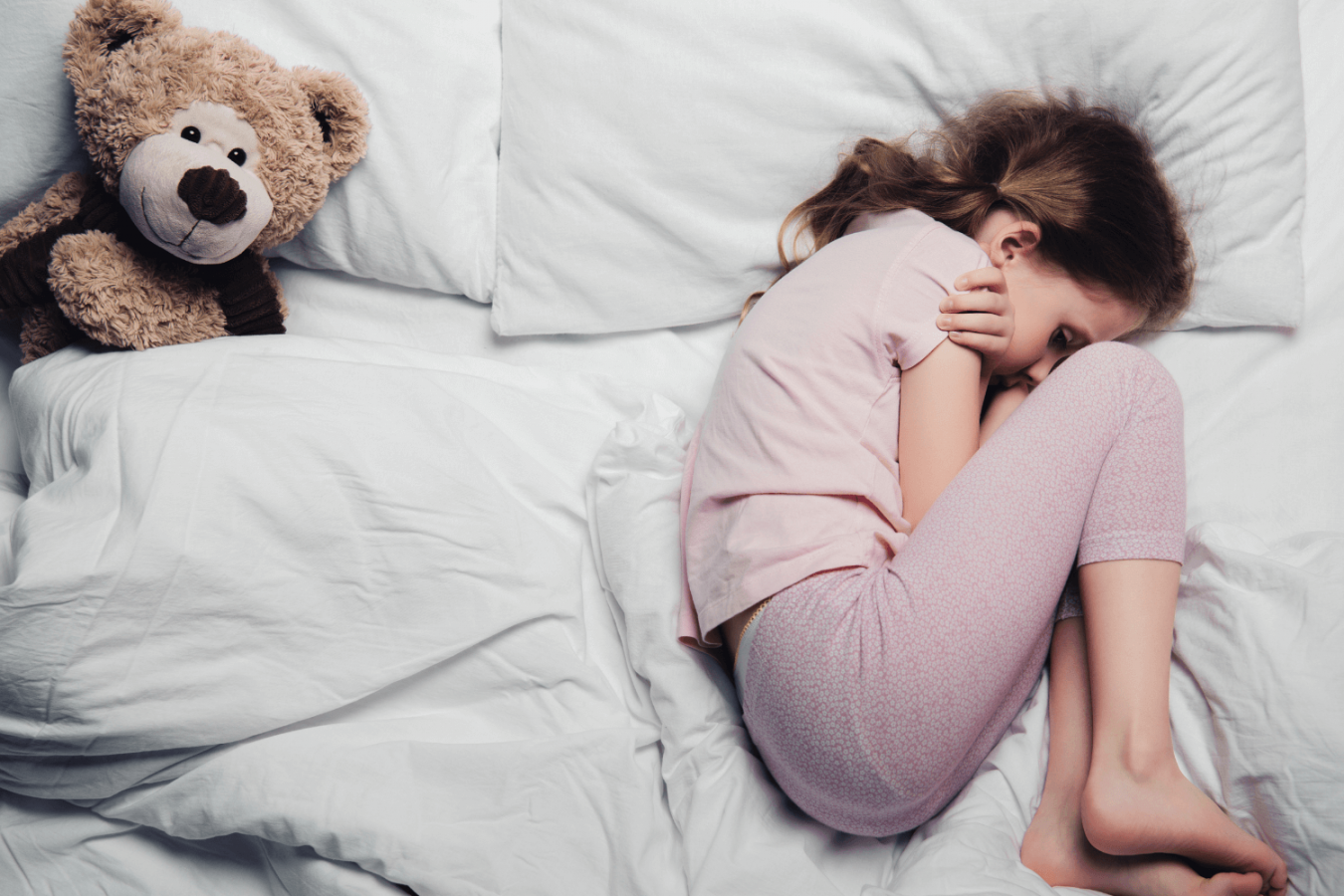
Leading parenting expert Michael Grose has just published a new book on coping with childhood anxiety. Here he offers advice on helping your child manage anxiety.
If your child feels anxious, reassure them that these feelings are a normal response to new people, events or potentially challenging situations. Help your child understand that there is a great deal they can do to manage their anxious feelings, so they can get on with the activities they enjoy.
Explain Anxiety
If your child is anxious, they may struggle to explain how they feel. An important first step in anxiety self-management is explaining to your child how anxiety works.
- Teach your child that the part of the brain that protects them from danger (the amygdala – pronounced ahh-mig-dah-la), is always on high alert when they are anxious.
- Explain that the amygdala sees danger where there is none, but the body prepares to fight for life or flee from danger as if it’s protecting them from a hungry lion.
- Discuss that the amygdala can’t differentiate between a hungry lion and public speaking or some other task they must face.
- Talk about the changes that happen in their body to power them up to fight or flee, including increased heart and breathing rates and the pumping of the blood from the stomach to the arms and legs, which can cause nausea and even vomiting for some.
Help Recognise Anxiety-Inducing Events
There are many things that can evoke anxiety in your child, including:
- stressful events
- life changes
- transitions
- difficult experiences
- new or unfamiliar situations.
Help your child to recognise the specific situations and events that make them feel anxious, such as meeting new friends, sitting tests or fear of rejection. In this way, you can help your child manage and minimise their feelings of anxiety.
Respond with Empathy
When your child feels anxious, the part of the brain that controls rational thinking, decision-making and concentration temporarily goes offline. They can feel easily overwhelmed by simple, everyday events and situations. Rather than protecting your child by allowing them to avoid meeting these challenges, or dismissing them as trivial, validate their feelings with statements such as:
- ‘I can see you’re feeling worried about going to camp without your brother.’
- ‘Thanks for telling me you feel nervous about the test. It’s understandable.’
- ‘I see you’re really anxious about this right now. I know it’s hard for you.’
Resist the temptation to rescue or fix a situation. Respond with empathy and understanding to your child’s concerns.
Manage Anxious Moments
Help your child develop the tools to regulate and push their anxious feelings to the background. Practise these anxiety management tools when your child is feeling calm, and it will be easier for them to practise when they are nervous. These include:
- Taking some deep breaths: deep belly breathing from the diaphragm calms the amygdala, reducing feelings of anxiousness.
- Bringing their attention back to the present: use their senses to bring their attention to the present moment and away from their worries – ‘Tell me five things you see, four things you hear and something you smell’.
- Getting them moving: physical exercise is not only a great distraction but it releases feel-good endorphins that help children and young people feel better and more optimistic about the future.
- Defusing their thoughts: Anxious thoughts can get stuck, refusing to budge no matter or how unwanted they are. Help your child to distance themselves from their thoughts by placing distancing statements in front of their thoughts. Replace ‘I’m going to fail the test’ with ‘I had a thought that I’m going to fail the test.’ Rather than changing their thinking, assist your child distance themselves from unhelpful thoughts.
Get the Fundamentals Right
Sufficient sleep, good nutrition and exercise are essential for anxious kids. Support your child to adhere to their optimal bedtime so they wake naturally each morning, reduce sugar, take care of their gut health through good nutrition and encourage regular exercise for optimal mental health.
There is a great deal you can do to help your child manage their anxiety. Start by assisting your child to understand the fundamentals of anxiety, show your genuine understanding of their feelings and be ready to support them emotionally to push their anxiety to the background.

About the author
Michael Grose, founder of Parenting Ideas, is one of Australia’s leading parenting educators. He’s the author of 12 books for parents, including Spoonfed Generation and the best-selling Why First Borns Rule the World and Last Borns Want to Change It. His latest release, Anxious Kids, was co-authored with Dr Jodi Richardson.
We thank Michael for allowing us to repost this blog. You can read the original here.
Like this post? Please share using the buttons on this page.


